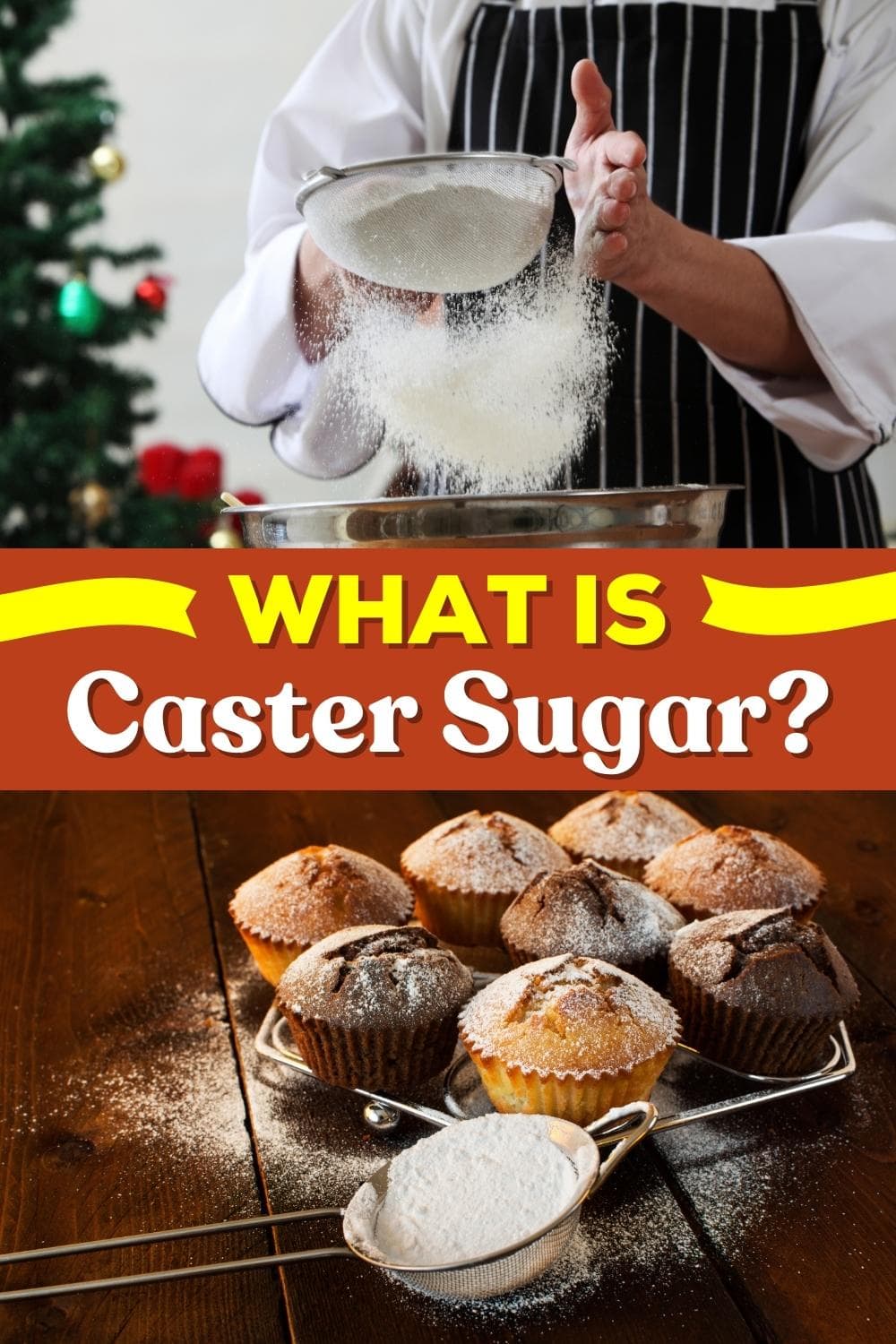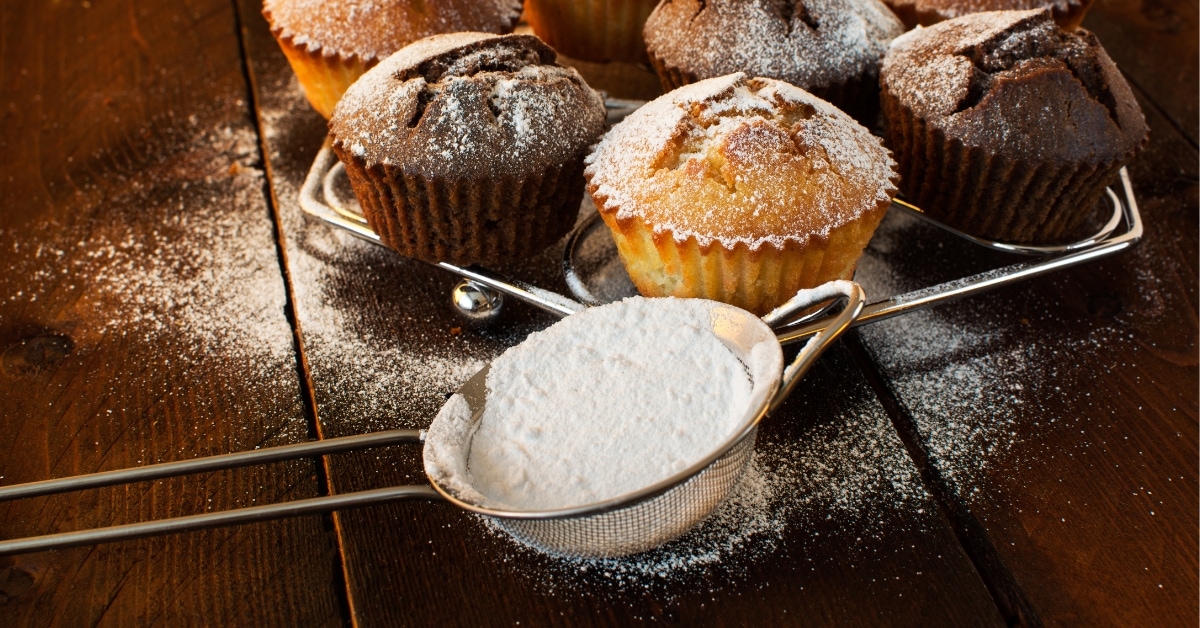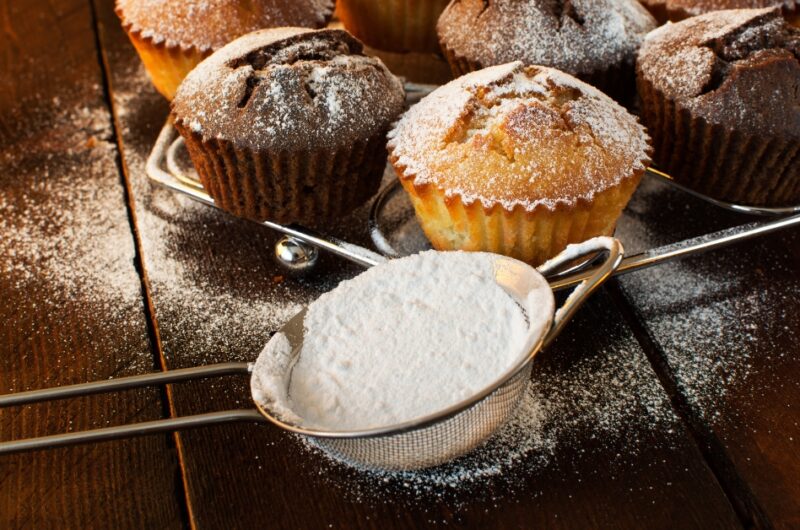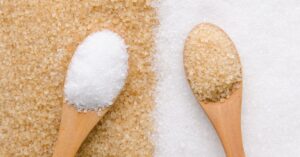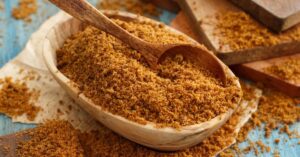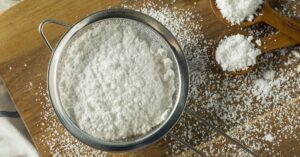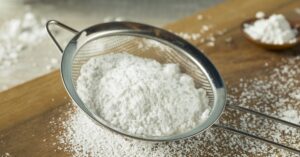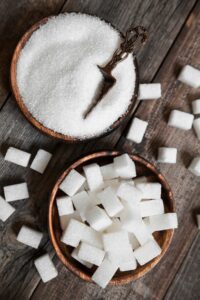If you watch the Great British Baking Show (The Great British Bake Off), you’ve probably wondered, “What is caster sugar?”
The term is thrown around almost as much as ‘soggy bottom.’ But instead of waiting for Paul to explain, let’s dive in ourselves!
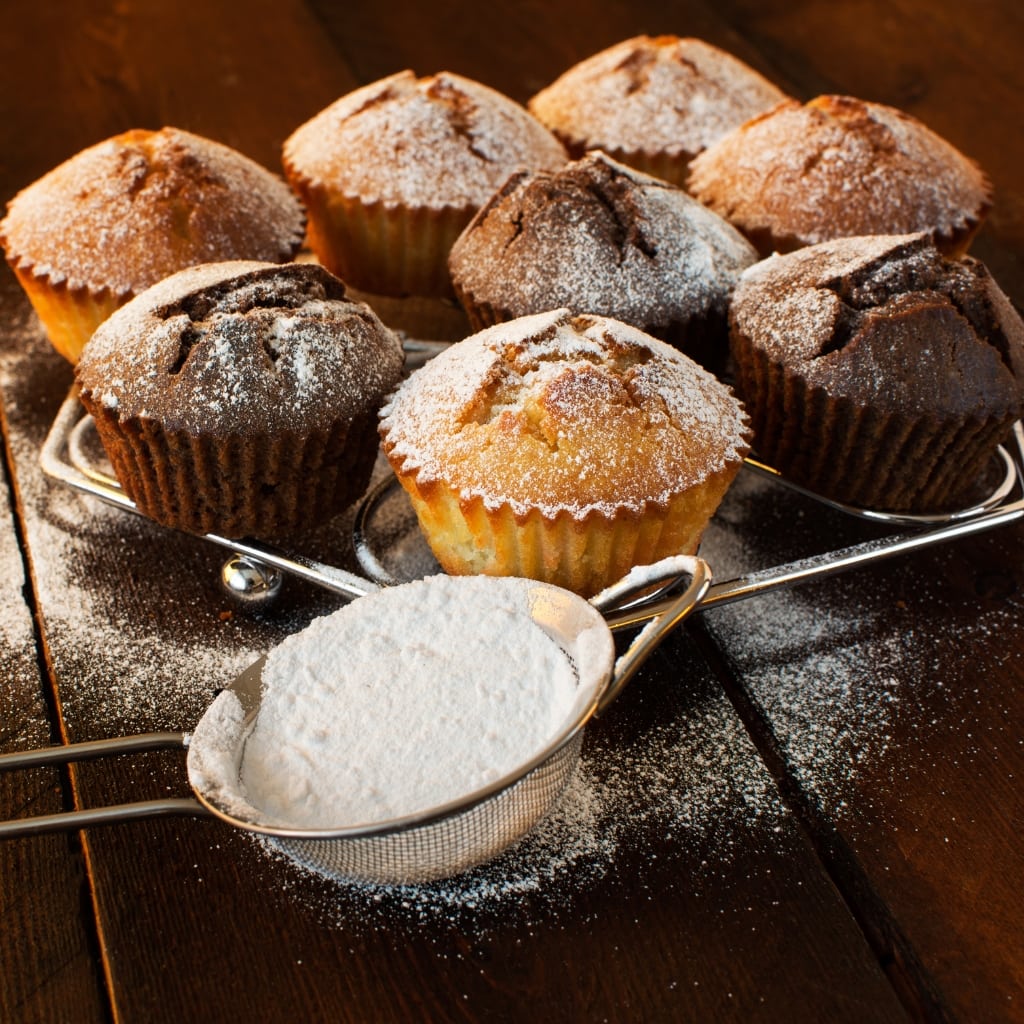
Caster sugar (also castor sugar) is finely ground white sugar. It’s not as fine as powdered/confectioner’s sugar but also not as grainy as granulated sugar.
Commonly used in the U.K., it’s known as ‘superfine sugar’ in the United States. It can easily be made at home by blending granulated sugar.
You’re more likely to see caster sugar pop up in an English or Australian recipe. And while granulated will work in a pinch, it won’t be as creamy.
So let’s explore more about caster sugar, including how to use it, where to find it, and how to make your own!
What Is Caster Sugar?
Caster sugar is processed granulated sugar that has been ground longer to make the crystals smaller. As a result, they dissolve faster.
It comes in two varieties, white and golden, the latter of which is unrefined and still contains some molasses, giving it a golden hue and caramelized flavor.
It lands smack dab between powdered and granulated sugar on the great sugar scale.
You can find it in supermarkets in the U.S., but you won’t find it in a giant five-pound bag. Instead, it’s sold in smaller quantities for merengues or cocktails.
So, it’s not a great value when baking regularly.
Unless you make your own, of course! I have a guide for that below 😉
Oh, and it’s important to understand that you can’t just substitute granulated for caster sugar when working in cups.
Since the crystals are so much smaller, you get more caster sugar per cup. So you’ll have more than you need.
Varieties of Caster Sugar
To make matters even more complicated for U.S. bakers, there isn’t just one type of caster sugar.
As mentioned, it comes in ‘regular’ and ‘golden’ varieties.
White sugar is processed and purified, which removes the molasses, leaving it white.
- Regular caster sugar is that same white sugar ground into smaller crystals.
- But golden caster sugar is more like light brown sugar. It’s not as processed or refined, so some of that sticky molasses remains.
It’s not a lot, but it’s noticeable. And it makes terrific meringues!
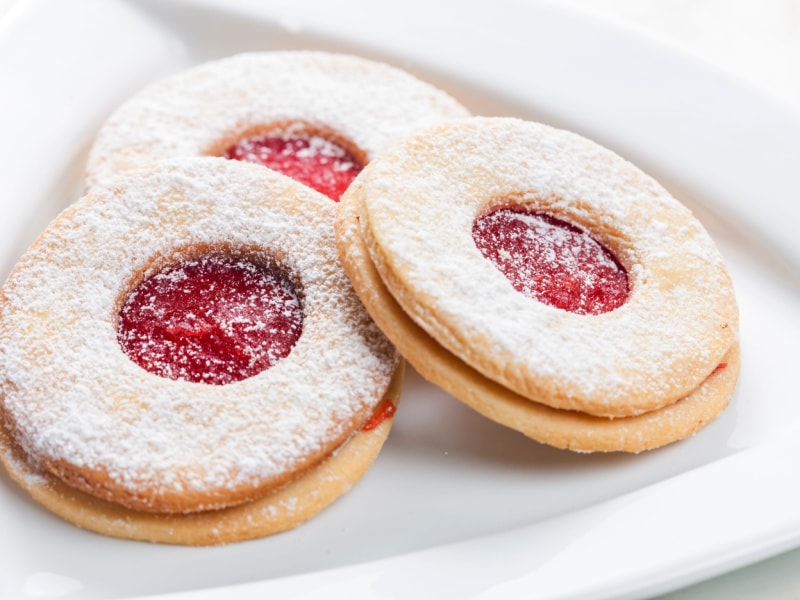
Caster Sugar Uses
Since caster sugar is much finer than coarse, it’s used in delicate desserts because it blends like a dream.
From cookies and cakes to meringues, caster sugar is a much better option for a sweet, creamy consistency.
Other recipes include:
- Shortbread
- Macarons
- Swiss rolls
- Sponge cakes
- Swiss meringue frosting
- Dacquoise
- Soufflé
- Caramel
Cocktails also incorporate caster sugar because it offers sweetness without a grainy texture.
Some bartenders even opt for a garnish of caster sugar rather than adding simple syrup.
And while you can stick to granulated sugar if you like, I think you’ll be surprised at the difference.
Try it once, and you might not want to go back.
Caster Sugar vs. Granulated Sugar
Welcome to the sugar showdown! In this episode, we’re comparing granulated sugar and caster sugar.
So, we’ve already established that these two have a lot in common. But what sets them apart?
Texture
Caster sugar has a finer texture than granulated sugar, so it’s ideal for delicate bakes and recipes in which the sugar isn’t totally dissolved.
For example, many no-bake desserts and cookies call for sugar. But since they’re not heated, you’ll still taste some of that graininess.
I don’t mind it. But if you want something smooth, use caster sugar instead.
Weight
Also, as I said before, caster sugar is heavier than granulated sugar because it’s ground so finely.
So if you scoop a cup of caster sugar, you’ll get more crystals. That means 1 cup of caster sugar weighs more than 1 cup of granulated sugar.
For this reason, it’s always best to weigh sugar on a kitchen scale to ensure accuracy.
Caster Sugar vs. Powdered Sugar
Next up on the sugar showdown is caster sugar vs. powdered sugar.
Texture
Powdered sugar is essentially granulated sugar that’s been ground completely into a powder.
So it’s the same method as making caster sugar, it’s just processed even more.
It’s also often mixed with an anti-caking agent, such as cornstarch.
Overall, caster sugar has a grainier texture than powdered sugar, making it less suitable as a finishing sugar.
That means you can’t use it to dust over lemon bars or cookies.
Weight
In terms of weight, following the logic above, you’d think that 1 cup of powdered sugar weighs more than 1 cup of caster sugar. Right?
But that’s not the case.
Powdered sugar is very finely ground but does still contain crystals. And those crystals have a lot of air between them.
So, powdered sugar is much lighter than caster sugar.
In fact, where 1 cup of caster sugar weighs about 200 grams, 1 cup of powdered sugar only weighs about 100 grams.

Where to Buy Caster Sugar In the U.S.
You can buy caster sugar in the U.S., but it’s tricky.
As mentioned, caster sugar comes in much smaller qualities than powdered or granulated sugar.
So if you want to start using it regularly, you’ll be better off making it yourself.
But if you just need it for one simple recipe, you’ll find it at your local supermarket as ‘superfine’ sugar.
If you want a giant bag, you’ll have to look online. Unfortunately, it’s almost three times as expensive as granulated sugar!
How to Make Caster Sugar
If you don’t want to take out a loan to have caster sugar shipped stateside, fear not! You can make it at home with very little extra effort.
Here’s how to make 1 cup of caster sugar:
- Place 1 cup and 2 teaspoons of granulated sugar into a food processor, wide-base blender, or coffee grinder.
- Pulse the sugar for a few seconds until the texture is super fine but not a powder.
Pretty easy, huh?
Just keep in mind that if you want more than one cup, you’ll need to work in small batches.
Sugar doesn’t move like liquid, so the bottom will be powdery, and the top will still be granulated if you try to do it all at once.
Caster Sugar Substitutes
If you’re in a pinch and can’t make your own, you have a couple of options for substitutes:
- Granulated Sugar for Bakes – It has the same sweetness as caster sugar but is more gritty. So you may want to work it more (i.e., beat the butter and sugar for longer). Also, make sure to weigh it instead of using cups.
- Powdered Sugar for Finishing – Powdered sugar will work well as a finisher and in drinks since it’ll dissolve faster.
- Brown Sugar for Golden Caster Sugar – Use brown sugar as you would golden caster sugar. But remember that brown sugar has more molasses, so the texture may differ.
- Raw or Coconut Sugar for Golden Caster Sugar – For a simple golden-caster sugar swap, opt for raw sugar or coconut. The textures are similar, and they don’t have the added moisture of brown sugar.
Another substitution I’ve tried is a mix of powdered sugar and granulated sugars. Together, they give you both the fine and the crystalized elements.
I’ve used this in cookies and cakes, and it worked pretty well.
But you can’t beat the real deal. And since it’s so easy to make, I recommend taking the time to do so.
